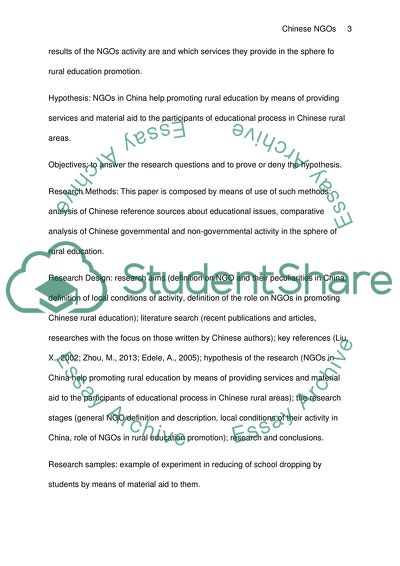Cite this document
(The Role of NGOs in Promoting Rural Education in China Research Proposal Example | Topics and Well Written Essays - 2250 words, n.d.)
The Role of NGOs in Promoting Rural Education in China Research Proposal Example | Topics and Well Written Essays - 2250 words. https://studentshare.org/sociology/1865617-the-role-of-ngos-in-promoting-rural-education-in-china
The Role of NGOs in Promoting Rural Education in China Research Proposal Example | Topics and Well Written Essays - 2250 words. https://studentshare.org/sociology/1865617-the-role-of-ngos-in-promoting-rural-education-in-china
(The Role of NGOs in Promoting Rural Education in China Research Proposal Example | Topics and Well Written Essays - 2250 Words)
The Role of NGOs in Promoting Rural Education in China Research Proposal Example | Topics and Well Written Essays - 2250 Words. https://studentshare.org/sociology/1865617-the-role-of-ngos-in-promoting-rural-education-in-china.
The Role of NGOs in Promoting Rural Education in China Research Proposal Example | Topics and Well Written Essays - 2250 Words. https://studentshare.org/sociology/1865617-the-role-of-ngos-in-promoting-rural-education-in-china.
“The Role of NGOs in Promoting Rural Education in China Research Proposal Example | Topics and Well Written Essays - 2250 Words”. https://studentshare.org/sociology/1865617-the-role-of-ngos-in-promoting-rural-education-in-china.


